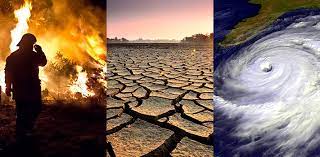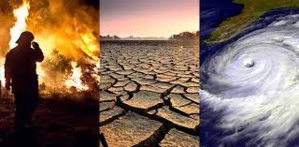Top agricultural and food companies risk losing up to a quarter of their value by 2030 if they don't adjust to new regulations and consumer trends brought on by climate change, according to a recent report from campaigners connected to the United Nations.
Research that will be presented on Tuesday examined how 40 large companies, including food retailers and agricultural producers, might fare under scenarios dubbed "key to reducing emissions," such as if consumers cut back on their consumption of meat or if governments institute carbon emission prices.
According to the study, if the companies did not adopt new procedures, their value would decrease by an average of 7 per cent by 2030, which would result in investor losses of about $150 billion.
The report notes that at the same time, industries like plant-based meat and forest restoration present the same companies with significant new opportunities.
According to a campaign representative, the report does not name specific companies and should not be interpreted as investment advice.
It is being released by Race to Zero, an initiative supported by the U.N. to combat climate change. Data from Vivid Economics, a division of the consulting firm McKinsey & Co., was used by researchers. The report will be released during Climate Week, a series of activities connected to the gathering of world leaders in New York.
Supporters asserted that the results support earlier calls for investors and businesses to stop purchasing commodities linked to goods like cattle, palm oil, and soy that cause deforestation.
Last year, more than 100 world leaders made a commitment to stop and reverse land degradation and deforestation by the end of the decade.
"The reality is stark: Nature risk is fast becoming an integral factor to investment risk," said Peter Harrison, chief executive of Schroders Plc, in a statement sent by a Race to Zero representative.
(Source:www.reuters.com)
Research that will be presented on Tuesday examined how 40 large companies, including food retailers and agricultural producers, might fare under scenarios dubbed "key to reducing emissions," such as if consumers cut back on their consumption of meat or if governments institute carbon emission prices.
According to the study, if the companies did not adopt new procedures, their value would decrease by an average of 7 per cent by 2030, which would result in investor losses of about $150 billion.
The report notes that at the same time, industries like plant-based meat and forest restoration present the same companies with significant new opportunities.
According to a campaign representative, the report does not name specific companies and should not be interpreted as investment advice.
It is being released by Race to Zero, an initiative supported by the U.N. to combat climate change. Data from Vivid Economics, a division of the consulting firm McKinsey & Co., was used by researchers. The report will be released during Climate Week, a series of activities connected to the gathering of world leaders in New York.
Supporters asserted that the results support earlier calls for investors and businesses to stop purchasing commodities linked to goods like cattle, palm oil, and soy that cause deforestation.
Last year, more than 100 world leaders made a commitment to stop and reverse land degradation and deforestation by the end of the decade.
"The reality is stark: Nature risk is fast becoming an integral factor to investment risk," said Peter Harrison, chief executive of Schroders Plc, in a statement sent by a Race to Zero representative.
(Source:www.reuters.com)






